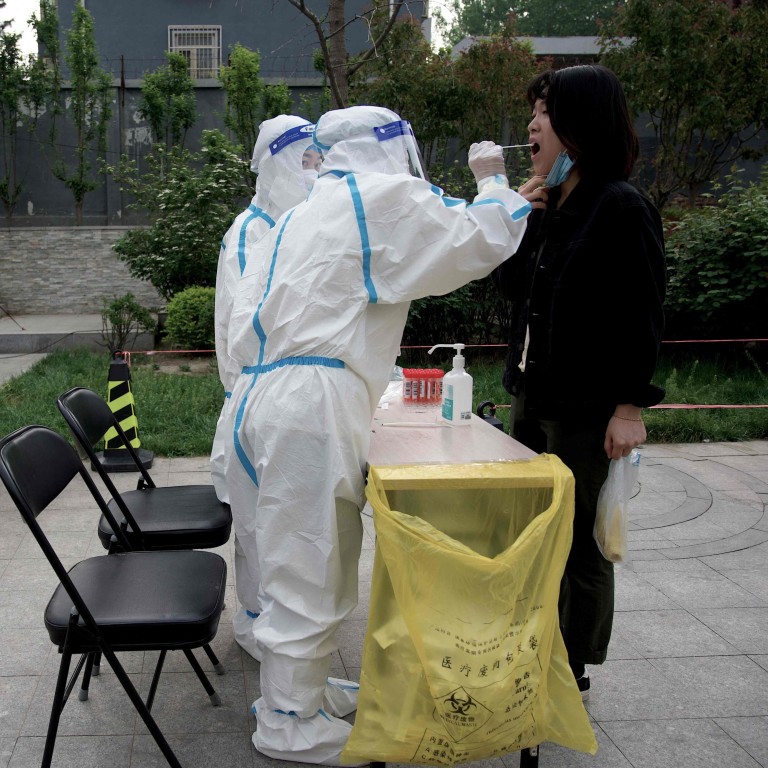
European nations tell China ‘self-isolation’ is stoking ‘mistrust’ in plea for easing of Covid-19 curbs
- European ambassadors from Switzerland, France, Norway, Italy and Croatia have appealed to Beijing to relax rules that prevent face-to-face meetings
- China’s lockdowns and on-off economy are causing company losses and creating misunderstandings in the business community and diplomatically
A group of European ambassadors to China has alerted Beijing to the “consequences” of maintaining its zero-Covid policy, calling on authorities to ease rules that prevent face-to-face meetings to avoid misunderstandings.
China was drifting apart from the rest of the world due to its hardline restrictions on international travel, said Swiss ambassador Bernardino Regazzoni.
The number of Swiss students in China was practically zero at the moment, he told an offline round table forum held by the Centre for China and Globalisation think tank in Beijing on Monday.
I hope our Chinese partners understand that self-isolation will end up harming China in the first place and the rest of the world
“After three years of zoom meetings, we are aware of the urgency to move back to meeting in person,” he said. “One cannot pursue globalisation and total control at the same time. It is either-or. I hope our Chinese partners understand that self-isolation will end up harming China in the first place and the rest of the world.”
He said it was indisputable that the zero-Covid policy had “consequences”.
Face-to-face communication would help reduce international tensions, according to Regazzoni.
“I bet that half of the misunderstanding could be dampened by the resumption of in-person diplomacy out of artificial settings and bubbles,” he said.
His remarks were echoed by Norway’s ambassador Signe Brudeset, who said the number of Norwegians living in China today was also astonishingly low, though the figure needed checking.
‘Should we stay or go?’ China’s zero-Covid policy has manufacturers asking
She said some companies felt a growing distance between their boardrooms in Norway and their local businesses in China.
“The lack of face-to-face communications weakens our understanding,” she said. “There is a risk of more misunderstanding and misinterpretation as a media reality with information and misinformation enhances this negative effect in that respect.”
The comments come on the heels of growing concern at home and abroad about Beijing’s draconian zero-Covid controls, which include lockdowns, mass testing and quarantine in government facilities.
Easing the international travel rules is fundamental to restore pre-pandemic flows
Croatian ambassador Dario Mihelin said the lack of people-to-people contacts and informal offline discussions would lead to a sense of growing apart.
“And then the sense of growing apart creates such great grounds for misunderstanding, misinterpretation, miscommunication and, unfortunately, mistrust,” he said.
If China’s borders were closed too long, it would lead to isolation and bring about long-term social and economic costs that could be entirely avoided, Italian ambassador Luca Ferrari said.
“Easing the international travel rules is fundamental to restore pre-pandemic flows, political visits, business exchanges and students,” he said, noting it was key to attracting and retaining talent, which would ensure competitiveness and provide foreign know-how inside China.
Beijing has said it will increase domestic and international flights in an orderly manner.
“We have really appreciated the commitment of the Chinese authorities to increase the number of international flights last week … of course, more needs to be done along the same lines,” said Ferrari.
French ambassador Laurent Bili said that travel restrictions impact not only corporate cooperation, but also the ability to have a meaningful political dialogue between European and Chinese leaders.

